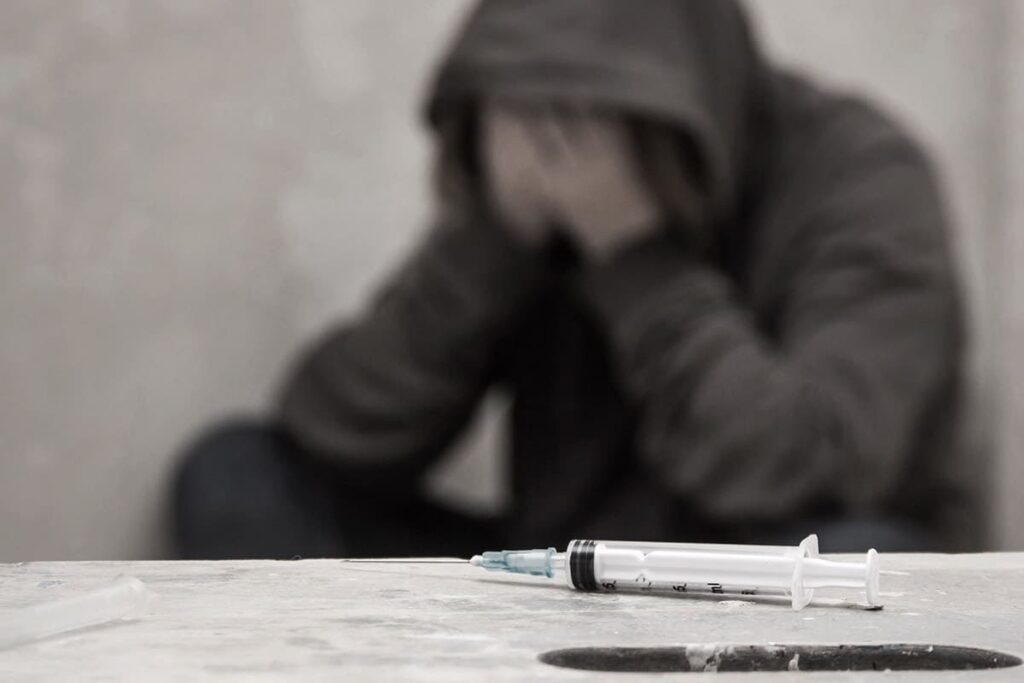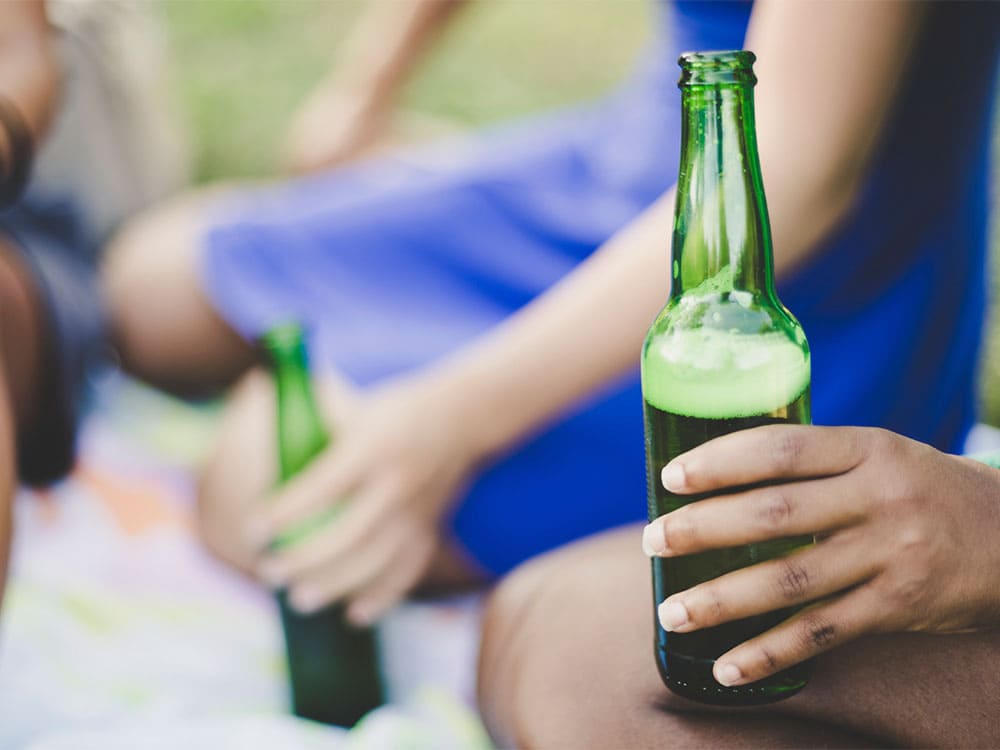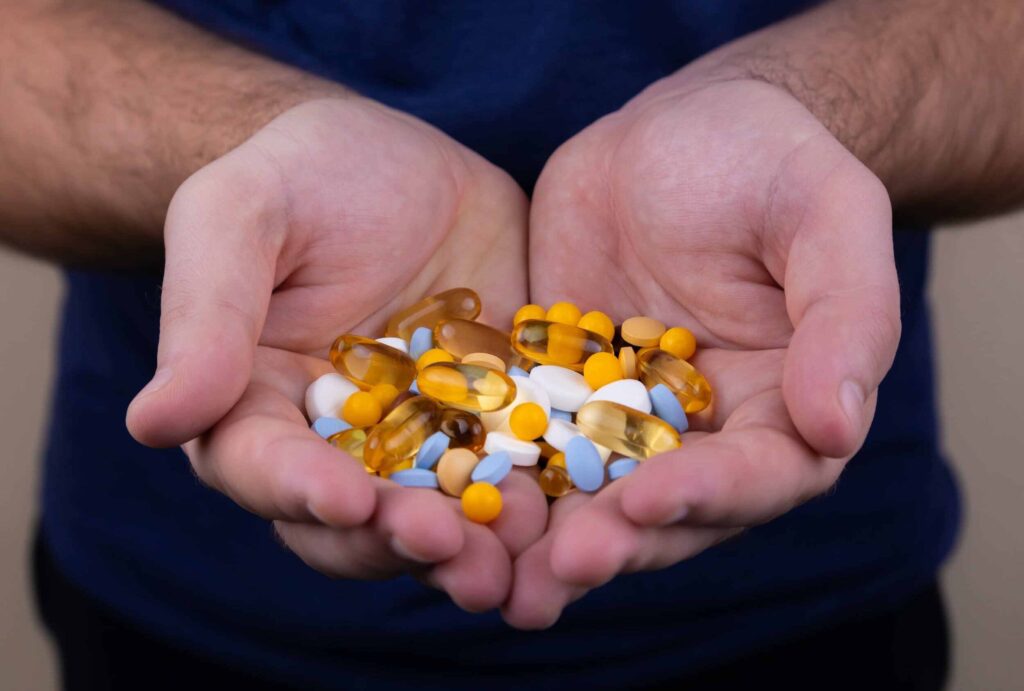Did you know that nearly 1 in 5 teenagers has tried an illicit drug by the age of 15? This startling statistic highlights a growing concern about substance abuse among teenagers. Now more than ever, parents are requiring tips for preventing substance abuse in teenagers.
Data from the Monitoring the Future survey shows that substance use is prevalent among teenagers: 27.3% of 12th graders reported vaping nicotine, 30.7% reported using cannabis, and 51.9% reported alcohol use in the past year.
In this article, we will be discussing the growing need for us parents to talk to our children about substance abuse. For that reason, we will be providing you with helpful tips for preventing substance abuse in teenagers.
But first, as parents, we need to have a real grasp of the impacts of substance abuse in teenagers!
4 Alarming Impacts Of Substance Abuse On Teenagers
Substance abuse among young people has severe consequences, each supported by extensive research and data.

The following are 4 most alarming impacts of substance abuse on teenagers:
1. Consuming Early Leads to Higher Risk of Addiction:
According to SAMHSA (Substance Abuse and Mental Health Services Administration), using substances at a younger age significantly increases the chance of co-occurring mental health disorders as well as addiction.
For example, 38.6% of admissions patients aged between 18-30 years old who started taking drugs when they were below 12 years reported having co-occurring mental illnesses.
2. Cognitive and Academic Diminishment:
During adolescence which is a crucial stage in human growth where lots of brain developments take place, impacts of substance abuse on teenagers can damage their cognitive skills.
Problem-solving skills, memory retention ability, and general capacity to learn are some areas affected by marijuana or prescription drug use among teenagers thus compromising their academic performance and prospects.
3. Involvement in Dangerous Activities with Safety Concerns:
When adolescents indulge themselves in substances some will often engage in risky behaviors which expose them more to accidents or even criminal involvement.
One of the most alarming impacts of substance abuse on teenagers according to CDC findings shows higher chances for accidents and violence-related incidents due to substance misuse.
Unsafe driving practices such as failure to wear seat belts while driving under the influence of drugs may result in fatal road crushes while unsafe sexual intercourse can lead to unwanted pregnancies among other things.
4. Long-term Health Hazards:
The health effects associated with drug addiction are far-reaching ranging from liver damage caused by excessive drinking to overdose deaths mainly seen among teens/young adults who abuse opioids like heroin or fentanyl which have high risks for ODs.
These impacts of substance abuse on teenagers demonstrate the critical need for comprehensive prevention strategies, better parental and community involvement, and enhanced educational programs to address and mitigate the risks associated with teenage substance abuse.
Read More: Mental Health Tips for Kids: 5 Powerful Parenting Strategies To Support Your Child’s Mental Health
7 Helpful Tips For Preventing Substance Abuse In Teenagers
As parents, our responsibility is to guide our teenagers through the challenges of life; one of the most important of these being preventing drug abuse.

Here are ten tips for preventing substance abuse in teenagers:
1. Talk openly
Start early and keep a culture of open and truthful conversation about the dangers of drug abuse. Let them know they can talk to you about anything without fear of being judged.
Relate stories or news items that show consequences people faced because they abused substances so that it becomes real for them.
Encourage questions from them as well as let them share their concerns while ensuring you listen carefully enough to understand where they are coming from.
2. Define clear limitations
Make rules that touch on substance use known and ensure fair enforcement throughout. Communicate firmly but kindly what your expectations are regarding this matter.
State why such boundaries exist e.g., protecting health or future opportunities among others while at times involving teenagers themselves in setting some limits so that they may feel part and parcel in sticking by those rules.
3. Stay Attached:
Recognize the friends and pastimes of your adolescent. Be part of their day-to-day life to know what they go through and offer help where necessary. Staying attached is one of the crucial tips for preventing substance abuse in teenagers.
Show support for their hobbies as well as attending school events, extracurricular activities, or even social gatherings that you can manage to be a part of which will show them that you are interested in what interests them too.
4. Educate On The Hazards:
Talk about the physical, emotional, and legal consequences attached to drug abuse. Give your teenager knowledge based on facts so that they can make decisions from an informed point of view.

Find out how various substances affect the brain and body using age-appropriate materials with them;
Research together this could also mean unmasking common myths propagated by peers or equipping them against different forms of social pressure related to substance use through preparation which enables response confidence combined with assertiveness during such situations.
5. Encourage Positive Action:
Ensure your child engages themselves in constructive activities such as sports, hobbies, or community service. This is one of the most effective tips for preventing substance abuse in teenagers.
Help them identify what they like doing most whether it’s painting, singing in a choir, or volunteering at hospitals among other things that would nurture their talents/teamwork spirit.
These undertakings don’t just take up free time but also create a sense of fulfillment within oneself as well as foster integration thus reducing chances of turning towards drugs as coping mechanisms.
Read More: 10 Fun And Engaging Teenage Confidence-Building Activities Every Parent Must Know!
6. Monitor Digital Use:
Monitor your teenager’s online activity and social media involvement. Search their digital tracks for any possible dangerous behaviors or actions.
You can follow their internet conduct with the help of parental control or monitoring apps, while still respecting their privacy.
Talk about digital responsibility and warn them against sharing personal information on the internet or taking part in substance-abuse-related risky online challenges.
7. Teach Coping Mechanisms:
Guide your teenager on how to deal with stress, peer pressure, and difficult emotions healthily. Urge them to engage in practices such as mindfulness, physical exercises, or artistic activities like writing in a journal or painting.
Conduct role plays of situations where they may face peer influence to use drugs –with them practicing assertiveness skills as well as exit strategies.
Educate them on the essence of self-care and seek assistance from trustworthy adults or friends when going through hard times.
Approach these tips for preventing substance abuse in teenagers empathetically and sympathetically by stressing your care for them and showing them the love that they need no matter what.
It is also important to note that you should work hand in hand with professionals towards coming up with individualized plans which meet their unique needs as well as recovery goals.
We can create the much-needed support system around our kids so that they may thrive in life and keep on track toward a bright future health-wise.
Read More: 5 Alarming Symptoms Of Depression In Teens Parents Need To Be Aware Of!
5 Tips For Teenagers For Preventing Substance Abuse In Adolescence
Despite our best efforts as parents, we often fail to communicate with our children. That’s why we dedicate this section directly to teenagers. The frontline warriors in our fight to prevent substance abuse in adolescence are our children themselves.

Here are 5 tips for teenagers to prevent substance abuse in adolescence:
1. Do not hesitate to say no:
There are times when we may be reluctant to make the right decisions because we fear negative reactions from our peers or strangers. It might appear that everybody is doing it but that is usually far from the truth.
You are entitled to reject any undertaking that goes against your principles without having to justify yourself. When you find yourself in situations where you are being coerced into doing something against your will it is alright to walk away.
2. Choose your friends carefully:
Take note of the kind of people you hang around with. If all your associates are alcoholics or drug addicts then it is high time you considered widening your circle of friends.
Sticking around companions who abuse substances can easily rub off on you and before long, you will find yourself engaging in similar vices.
Therefore, ensure that you always surround yourself with individuals who uplift and value you; friends who support what matters most in life.
3. Establish relationships with grown-ups:
While growing up, it becomes vital for one to have reliable adults they can talk to about various challenges encountered along the way such as those related to drugs and alcohol.
Such mentors share their past experiences which not only equip someone with the necessary skills required during such moments but also help them gain a deeper understanding of how best to deal with difficult circumstances.
4. Discover pleasure through drug-free activities:
Learn different methods of enjoying oneself while remaining sober or making connections with others without relying on booze and other substances that alter moods artificially.
Using drugs can change a person’s character permanently, restrict their potentiality in life as well make everything complicated than it ought to be so do not let boredom take over by involving yourself more in school work like joining clubs taking part in community service programs among other related things.
5. Respect family rules:
Once independence begins setting in, one needs to ensure trust between them and their parents remains intact throughout this period hence treating each other respectfully becomes important even when talking about drugs or alcohol related issues.
Talking openly about these things can help parents understand their children better while at the same time providing necessary guidance as well. It shows maturity and respect for others to follow rules set by family members concerning drug abuse.
Read More: Prevent Addiction In Adolescence: 10 Effective Parental Tips!
A Word From Mind Family
The impacts of substance abuse on teens—like addiction risks, cognitive problems, and risky behaviors—are serious. Our ten tips focus on clear communication, setting boundaries, being role models, and supporting positive activities.
By following the tips for preventing substance abuse in teenagers and creating a safe home environment, monitoring online activity, teaching coping skills, as well as seeking help when needed, we can strengthen our child’s ability to handle challenges.
Let’s stay connected with our teens, encourage their interests, and offer consistent support. Together, we can help them live healthy, fulfilling lives free from substance abuse. Let’s keep advocating for prevention and support to ensure our teenagers have every opportunity to succeed.
Frequently Asked Questions (FAQs)
What are the impacts of substance abuse on teenagers?
Substance abuse can lead to addiction, cognitive impairment, risky behaviors like unsafe driving, and serious long-term health issues.
What are some tips for preventing substance abuse in teenagers?
Tips include open communication, setting clear boundaries, modeling responsible behavior, encouraging positive activities, and seeking professional help if needed.
What are some tips for children for preventing substance abuse in adolescence?
Children can say no to peer pressure, choose friends wisely, build relationships with trusted adults, engage in drug-free activities, and respect family rules about substances.


















Leave a Reply